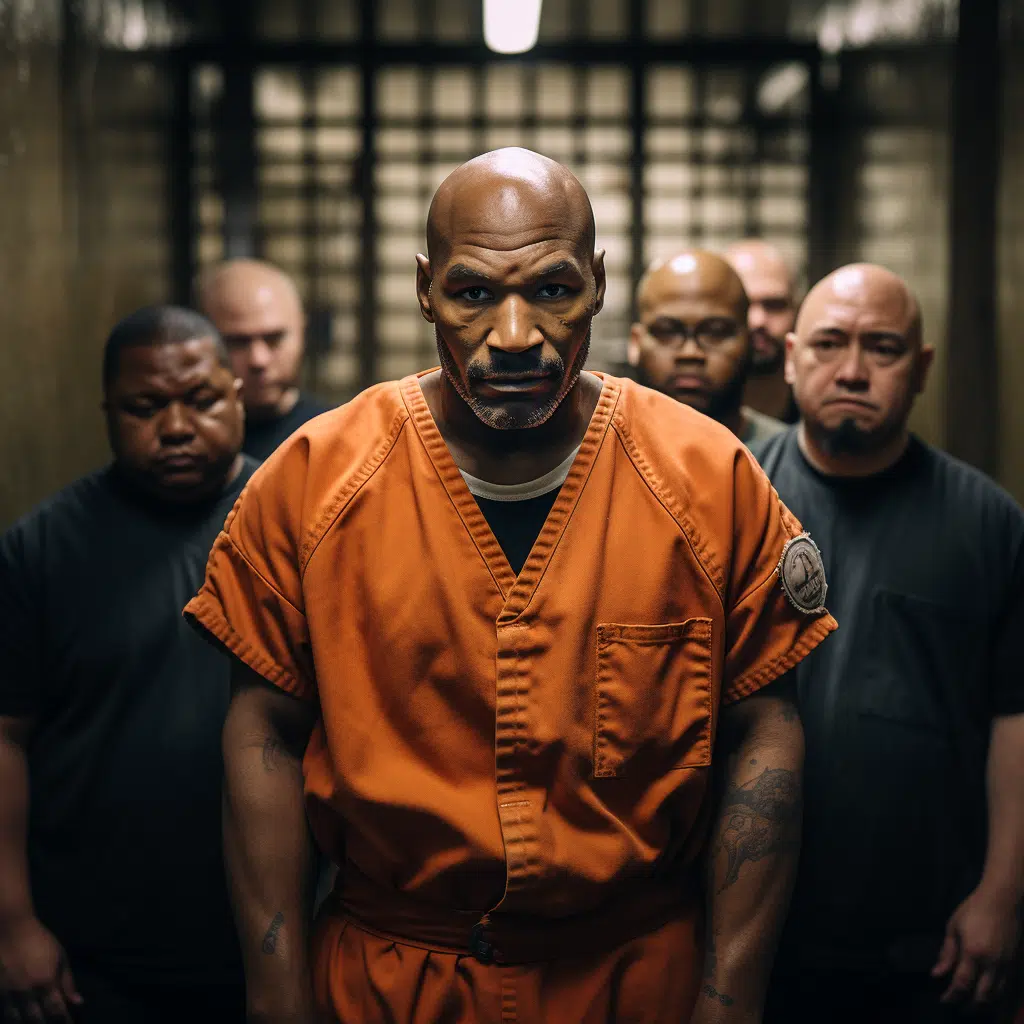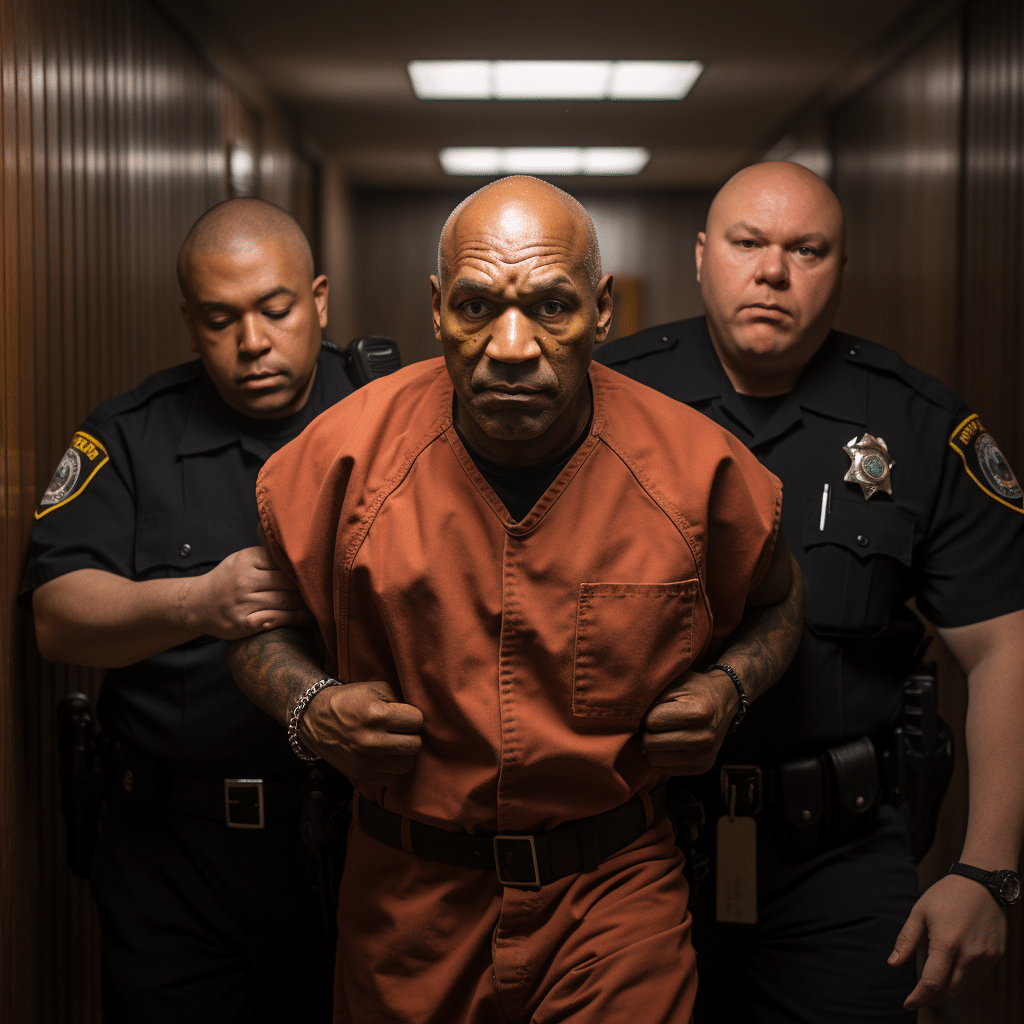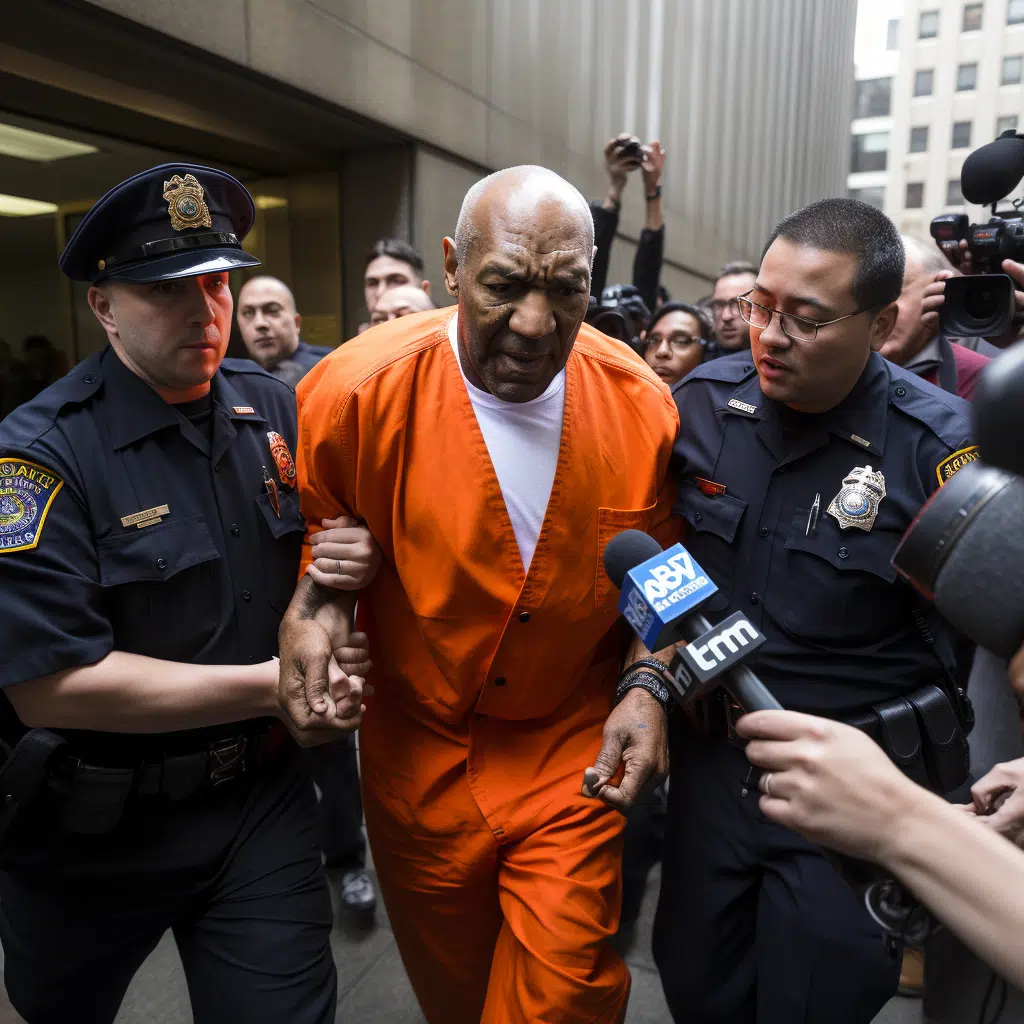Mike Tyson, the once-feared heavyweight champion of the world, had a career that was as illustrious as it was tumultuous. But why did Mike Tyson go to jail for? It's a question that has lingered in the minds of boxing fans and casual observers alike. This article will take you through the events that led to his incarceration, the legal proceedings, and the aftermath that shaped his life forever. So, buckle up and let's dive into the gritty details.
Mike Tyson, known for his ferocious punches and unmatched agility in the ring, became a household name in the 1980s. However, his life outside the ring was anything but smooth sailing. The controversy surrounding his time behind bars is a story of power, privilege, and the consequences of unchecked behavior. Understanding why he ended up in prison is crucial to grasping the complexities of his life.
Through this article, we'll explore the reasons behind Tyson's imprisonment, the impact it had on his career, and how he managed to rebuild his life afterward. This isn't just about a boxing legend; it's about human resilience and the capacity for change. Let's get started!
Read also:Yara Shahidi Parents A Closer Look At The Family Behind The Star
Table of Contents
- Biography of Mike Tyson
- Why Did Mike Tyson Go to Jail For?
- The Legal Process and Trials
- The Aftermath of Incarceration
- Impact on His Boxing Career
- Rehabilitation and Redemption
- Public Opinion and Media Coverage
- Lessons Learned from Tyson's Experience
- Relevance in Today's World
- Conclusion
Biography of Mike Tyson
Before diving into the specifics of why Mike Tyson went to jail, let's take a moment to understand who he is. Mike Tyson, born on June 30, 1966, in Brooklyn, New York, grew up in one of the toughest neighborhoods in the city. His early life was marked by poverty and struggles, but he found solace in boxing, where he quickly rose to prominence.
Early Life and Career
Tyson's journey to becoming the youngest heavyweight champion in history was nothing short of remarkable. Under the guidance of legendary trainer Cus D'Amato, Tyson honed his skills and developed a fighting style that left opponents in awe. By the age of 20, he had claimed the world heavyweight title, cementing his place in boxing history.
Here’s a quick look at some of his notable achievements:
- Youngest heavyweight champion at the age of 20.
- Undefeated streak from 1985 to 1988.
- Renowned for his speed, power, and devastating knockout ability.
Bio Data
| Full Name | Michael Gerard Tyson |
|---|---|
| Date of Birth | June 30, 1966 |
| Place of Birth | Brooklyn, New York, USA |
| Profession | Boxer, Actor, Entrepreneur |
| Claim to Fame | Youngest heavyweight champion in boxing history |
Why Did Mike Tyson Go to Jail For?
Now, let's get to the heart of the matter. Why did Mike Tyson go to jail for? It all started during the 1991 Miss Black America pageant in Indianapolis, Indiana. Tyson was a guest at the event and allegedly sexually assaulted a contestant named Desiree Washington. This incident sparked a chain of events that would change his life forever.
Details of the Incident
According to Desiree Washington, Tyson invited her and other contestants to his hotel room after the pageant. There, she claims he coerced her into having sex. Tyson has always denied these allegations, but the evidence presented during the trial led to his conviction.
Here are some key points about the incident:
Read also:Diane Keaton Young A Timeless Icons Journey Through The Ages
- Occurred in July 1991.
- Desiree Washington filed charges against Tyson.
- Tyson was arrested and later convicted of rape.
The Legal Process and Trials
The legal proceedings against Mike Tyson were heavily publicized and scrutinized. The trial took place in 1992, and the jury deliberated for several days before reaching a verdict. Tyson was found guilty and sentenced to six years in prison, with three years of probation.
Key Moments in the Trial
The trial was a dramatic affair, with both sides presenting compelling arguments. Here are some highlights:
- Desiree Washington testified about the alleged assault.
- Tyson's defense team argued that the encounter was consensual.
- Jurors were shown surveillance footage from the hotel.
The verdict shocked the world, and Tyson's career came to a screeching halt. It was a turning point in his life, one that forced him to confront the consequences of his actions.
The Aftermath of Incarceration
Following his release from prison in 1995, Tyson faced a new reality. The world had moved on, and the boxing landscape had changed dramatically. But he was determined to reclaim his place in the sport he loved.
Life After Prison
Tyson's post-prison life was a mix of triumphs and setbacks. He returned to boxing and won several matches, but his career was marred by controversies, including the infamous bite incident against Evander Holyfield. Despite these challenges, he managed to rebuild his life and establish himself as a respected figure in the boxing community.
Here are some notable moments from his post-prison career:
- Won several fights after his release.
- Lost to Evander Holyfield in a controversial match.
- Retired from boxing in 2005.
Impact on His Boxing Career
Tyson's imprisonment had a profound impact on his boxing career. It interrupted his momentum and allowed other fighters to rise to prominence. When he returned, the sport was no longer the same, and he struggled to regain his former glory.
Challenges Faced
Here are some of the challenges Tyson faced upon his return:
- Competition from newer, younger fighters.
- Public perception and media scrutiny.
- Financial difficulties and legal battles.
Despite these hurdles, Tyson's resilience and determination kept him in the spotlight, even as his career waned.
Rehabilitation and Redemption
After retiring from boxing, Tyson focused on personal growth and rehabilitation. He sought therapy, worked on his relationships, and became an advocate for mental health awareness. His journey from a convicted felon to a respected public figure is a testament to his ability to change and adapt.
Contributions to Society
Tyson has used his platform to raise awareness about important issues, including:
- Mental health and addiction recovery.
- Violence prevention and conflict resolution.
- Education and youth empowerment.
His efforts have earned him respect and admiration from fans and critics alike.
Public Opinion and Media Coverage
Public opinion about Tyson's imprisonment and subsequent rehabilitation has been divided. Some view him as a victim of circumstances, while others believe he got what he deserved. The media played a significant role in shaping these perceptions, often sensationalizing his story for clicks and views.
Media Influence
Here are some ways the media covered Tyson's story:
- Extensive coverage of the trial and conviction.
- Focus on his personal life and relationships.
- Analysis of his comeback attempts in boxing.
Regardless of the media's portrayal, Tyson's story remains a compelling narrative of rise, fall, and redemption.
Lessons Learned from Tyson's Experience
Tyson's journey offers valuable lessons about accountability, resilience, and the power of change. It shows that even those who make serious mistakes can find a path to redemption if they are willing to face their demons and work hard to improve.
Key Takeaways
- Accountability is crucial in personal and professional life.
- Resilience and determination can overcome even the toughest challenges.
- Second chances are possible with the right mindset and effort.
Relevance in Today's World
In today's world, where issues of consent and accountability are at the forefront of public discourse, Tyson's story serves as a reminder of the importance of addressing these topics head-on. His experience highlights the need for systemic change and support for victims of sexual violence.
Modern-Day Implications
Here are some ways Tyson's story resonates today:
- Raising awareness about sexual assault and consent.
- Promoting accountability and justice for victims.
- Encouraging rehabilitation and second chances for offenders.
Conclusion
So, why did Mike Tyson go to jail for? It was a complex series of events that ultimately led to his conviction and incarceration. While the experience derailed his career and tarnished his reputation, it also provided him with an opportunity for growth and redemption.
As we reflect on Tyson's story, let's remember the lessons it teaches us about accountability, resilience, and the capacity for change. Whether you're a boxing fan or just someone interested in human stories, Tyson's journey is a powerful reminder of the highs and lows of life.
Feel free to leave your thoughts in the comments below or share this article with others who might find it interesting. And don't forget to check out more articles on our site for insights into other fascinating topics!


